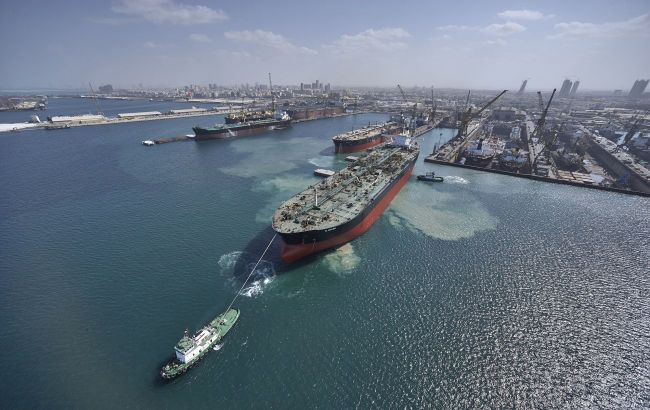Greek ships nearly halt transport of Russian oil, Bloomberg
 Illustrative photo (Photo: Getty Images)
Illustrative photo (Photo: Getty Images)
Greek companies have refused to trade in raw Russian oil after the increased sanctions by the United States targeting shipping companies, according to Bloomberg.
The number of Greek-owned tankers transporting Russian crude oil in January decreased to eight. This is less than the over 40 in May and around 20 for most of the second half of last year.
This happened after the U.S. Treasury alarmed Western tanker owners, asking them to explain what measures they took to adhere to the G7 price limit of $60 per barrel for Russian oil. Representatives of two Athens-based companies soon after stated that they acted cautiously, evaluating the situation.
Greek-owned vessels have completely disappeared from trading Russian oil, loaded at Pacific terminals in the country and delivered to buyers in China and India.
The loss of the Greek fleet will exert even more pressure on Russian tankers and the shadow fleet of vessels, which has increased since the Russian invasion of Ukraine.
Russia faced difficulties in redirecting markets
With the loss of the European market, which accounted for nearly all 1.6 million barrels of crude oil supplied per day from Russian ports in the Baltic, Black Sea, and Arctic, Russia was forced to rely almost exclusively on buyers in China and India, and to a lesser extent, Türkiye. This requires a much longer delivery and a greater number of ships.
Delivery became more complicated due to Houthi attacks on ships in the southern part of the Red Sea and the Gulf of Aden.
All Russian oil shipped from Western ports to India and China went through this ordeal, and at least one tanker was damaged, despite assurances from the Houthis that Russian and Chinese ships would be safe.
Tightening sanctions
Western sanctions led to half of Russia's oil and petroleum product exports in 2023 going to China, while India's share increased to 40% over two years. Europe's share in Russia's oil exports fell approximately tenfold to about 4-5% from around 40-45%.
Flows of oil from Russia faced problems after the tightening of U.S. sanctions against traders and shipping companies. Signs appeared just a few weeks after the U.S. Treasury imposed the most extensive sanctions against Russian oil traders and the state shipping company Sovcomflot since the beginning of the war against Ukraine.
Recently, the U.S. imposed new sanctions on the transportation of Russian oil, affecting nearly 20 tankers.

